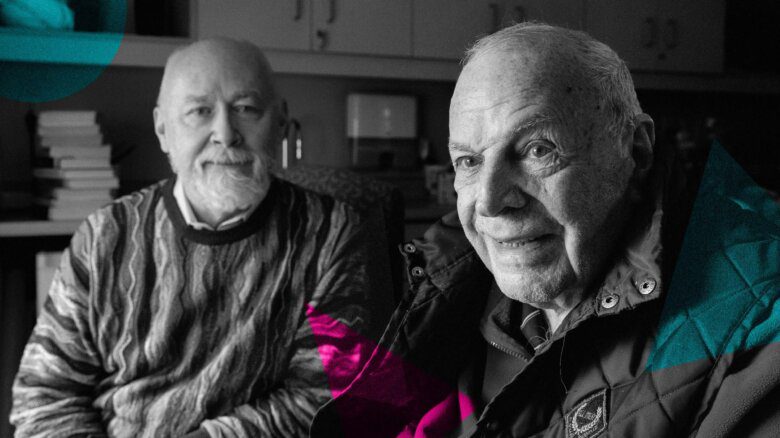“Ask Kai: Advice for the Apocalypse” is a column by Kai Cheng Thom to help you survive and thrive in a challenging world. Have a question? Email askkai@xtramagazine.com.
Dear Kai,
I feel really overwhelmed by something that’s happened recently in my intimate life with my partner. For context, I’m a trans woman (non-op) and my partner is a cis woman. We’ve been dating for about two years, and it’s been a really amazing relationship. I can’t remember ever loving somebody so much, and she says she feels the same way. It has always felt healthy, honest and open.
The thing is that we don’t really do penetrative sex (which is something I enjoy), because she has had some past experiences of abuse that make this really triggering for her. Throughout our relationship, we’ve done lots of other things, and our sex life is pretty great. When we first started dating, she did say that she would be possibly open to having penetrative sex at some point. So, recently I asked her if she might be into trying it, and she said yes. When we did, it really seemed like she was enjoying herself, and I thought I was paying close attention to her signals and communication, asking if she was okay and so on. But, afterward, I noticed she seemed to be kind of distant or dissociated, so I asked her what was up, and she said she was really triggered. I feel absolutely awful. Why did I ask her to do that when I know her history? Why couldn’t I tell that something was wrong for her? How could I have been so selfish?
We talked about it afterward, and she said that it’s “okay,” and that she wanted to try penetrative sex out to please me because she loves me, and that it’s not my fault. She said she just wasn’t able to tell me what was going on in the moment. We’re still together, and things still seem good between us. But honestly, I sort of feel like something must be really wrong if we’re in a relationship where she feels she has to do something that causes her such terrible pain in order to please me. And if I don’t know how to be with her (with anyone?) intimately without even noticing that she’s triggered and not enjoying it, what does that make me? Am I an abuser? I feel like a monster. I’m really afraid to have sex again. I would rather break up with my partner than hurt her (though breaking up would be awful). I don’t know what to do. Please help.
Monster In Love
Dear MIL,
My whole heart is crying out for you and your partner in this moment—of course you never want to cause the person you love pain. Of course you feel terrified and ashamed, and afraid that you have done something wrong. One of the deepest fears in the human psyche is that we are inherently harmful to the people we care about most; that we are incapable of giving love and therefore unworthy of receiving it. Few things activate this primal fear more than sexual intimacy gone wrong. Yet I want you to know, MIL, that you are indeed worthy of love. Situations like yours do happen in intimate partnerships—even healthy ones—and it is possible to work them out, and to grow from them.
Let’s begin with what happened. If I understand correctly, you and your partner started an intimate partnership with a particular set of agreements (sometimes called a relationship contract in couples therapy language), that is, that you would have a sex life without penetration to begin with. Your partner expressed an openness to revisiting the topic at a future time. After about two years of dating, you brought up the topic of penetration again with a request to try it. Your partner agreed to try it, and although you were conscious of practising active consent at the time, she expressed feeling triggered afterward. She also said that it wasn’t your fault she was triggered, and you two are still in a loving relationship now.
Based on all that, MIL, my humble opinion is that nothing abusive or violent happened in that scenario (with the caveat that I wasn’t there and can’t know all the details). This isn’t to say that there aren’t things that you and your partner could have done differently. Of course, sexual intimacy (and intimacy broadly) should be consensual, but even consensual intimacy can be surprising, painful and triggering. This is the nature of being a human in relationship with other humans: we sometimes hurt one another even when we’re doing our best to communicate clearly and respect each other’s boundaries. We’re messy and we make mistakes. Working through mistakes in the context of consensual but triggering or painful sexual intimacy is an important aspect of deepening erotic relationships and personal growth.
When you asked your partner if she would be into trying penetrative sex, MIL, you were acting within the container of the relationship contract you made together: she said she might be willing to try it at some point, and somewhere in your mind, you felt that “at some point” might mean “now, after about two years of dating.” Why did you ask? Well, I suspect it’s simply because you wanted to. As you say, you enjoy penetrative sex, and you wanted to enjoy it with the woman you love. An important part of practising consent is owning our desires and honestly asking for what we want (without the expectation of any particular answer). That is to say, it was okay to ask for what you want, MIL. As long as you aren’t pressuring or coercing anyone else, it is even good to do so.
Yes, you knew that your partner’s history has previously made penetrative sex triggering for her. I would imagine that both of you were hoping to create a different, more pleasurable experience together. Unfortunately, that’s not what happened. This doesn’t necessarily mean that you did something wrong, but it might mean that you need to do something different next time.
If your partner is open to it, I’d suggest having another conversation about why she said “yes” to your request, MIL. Having that conversation in the presence of a counsellor or therapist might be helpful if the topic feels overwhelming. Understanding your partner’s “yes” in that moment will probably be essential to understanding how things went sideways for her in the interaction. Did she agree to the request even though she didn’t really want to, but couldn’t bear the thought of disappointing you? Did she agree because she thought it would be okay for her and wanted to give you a gift, only to be surprised by how triggering the sex actually was in the moment? Or did she agree because she thought she might actually have a good time, only to realize she was mistaken?
Consent has many dimensions, and it can be really helpful to go into detail about what’s going on in any given interaction. Here, I’d like to introduce a framework I’ve learned from studying Somatic Sex Education, a hands-on form of sexuality coaching and healing. In some cases, we are willing to do something—happy to give a gift of pleasure to someone else by engaging in action that we’re personally neutral on but gives our partner joy.
In other cases, we’re wanting to do something—getting direct pleasure out of an action for ourselves. What we probably don’t want to be doing is tolerating a sexual action, gritting our teeth and getting through it because we think we have to, or we “should.” We definitely don’t want to be enduring a sexual action: experiencing actual harm without being able to stop what’s going on. Sometimes we tolerate or endure because of coercion, that is, because someone else is making us. Sometimes we tolerate or endure even when no one is explicitly making us, but because we don’t believe we have another choice.
“In the emotional intensity of having a past trauma triggered, it is often extremely challenging to communicate our wants and needs.”
When it comes to you and your partner, MIL, it could be helpful to get very clear about how you both can stay in the “wanting” and “willing” zones of consent. When is your partner engaging in penetrative sex for her own pleasure, and when is she trying to give you a gift? How can you let her know—fully and completely—that she doesn’t have to sacrifice comfort or safety to give you pleasure? Particularly when she is feeling triggered?
In the emotional intensity of having a past trauma triggered, it is often extremely challenging to communicate our wants and needs. Even if we know, cognitively, that we are safe, being triggered usually feels emotionally and physically like we are in a situation of serious danger. In this emotional state, trauma survivors can often revert to strategies that were once necessary to stay alive. Often, this looks like shutting down, going along with whatever’s happening in the moment, even if it hurts, and pretending things are okay when they’re not. This might be one reason that your partner wasn’t able to communicate that she was triggered to you in the moment, and why you didn’t notice what was happening.
One possible strategy for working through this challenging dynamic is to slow things down: take things one step at a time, with frequent breaks or pauses in between. For example, if you were to ever try having penetrative sex again, you might first discuss the topic a day or two in advance without actually having sex right way. Then, if things are still feeling right in the moment after the appropriate foreplay, you might try for just a few minutes (or even just a few seconds). Then check in. How are things feeling for each of you? Is there any way things could be better, more comfortable, more pleasurable? When it comes to navigating trauma, slow is often where the magic is—and that includes your own process as well as your partner’s, MIL.
Trans women carry with us great social stigma. The dominant culture tells us that we are sexually deviant and disgusting; it surrounds us with the stereotype that we are predators in disguise. While I can’t claim to know your specific lived experience, MIL, I can imagine that this situation with your partner might have activated some traumatic wounds of your own. I encourage you to really take the time to care for yourself—to remind yourself that you are good, that you are lovable, that you don’t have to be the perfect lover or be able to read your partner’s mind. You might focus instead on being honest, open, curious and compassionate, which are much more attainable goals.
Sexual intimacy can be a powerful, pleasurable, transformative and bonding experience. It can also be difficult, confusing, frightening and painful, even when we have the best of intentions. There is inherent risk in the act of embracing the erotic. That doesn’t make intimacy wrong, MIL; nor are you or your relationship wrong because of this one bad experience. Make room for yourself to take things slow, to be afraid, to take meaningful risks. Make room for you and your partner’s whole humanity. You will never love perfectly. You can always love kindly, honestly, and bravely. That is enough. You are enough.
Kai Cheng Thom is no longer a registered or practicing mental health professional. The opinions expressed in this column are not intended or implied to be a substitute for professional medical advice, diagnosis or treatment. All content in this column, including, but not limited to, all text, graphics, videos and images, is for general information purposes only. This column, its author, Xtra (including its parent and affiliated companies, as well as their directors, officers, employees, successors and assigns) and any guest authors are not responsible for the accuracy of the information contained in this column or the outcome of following any information provided directly or indirectly from it.


 Why you can trust Xtra
Why you can trust Xtra


